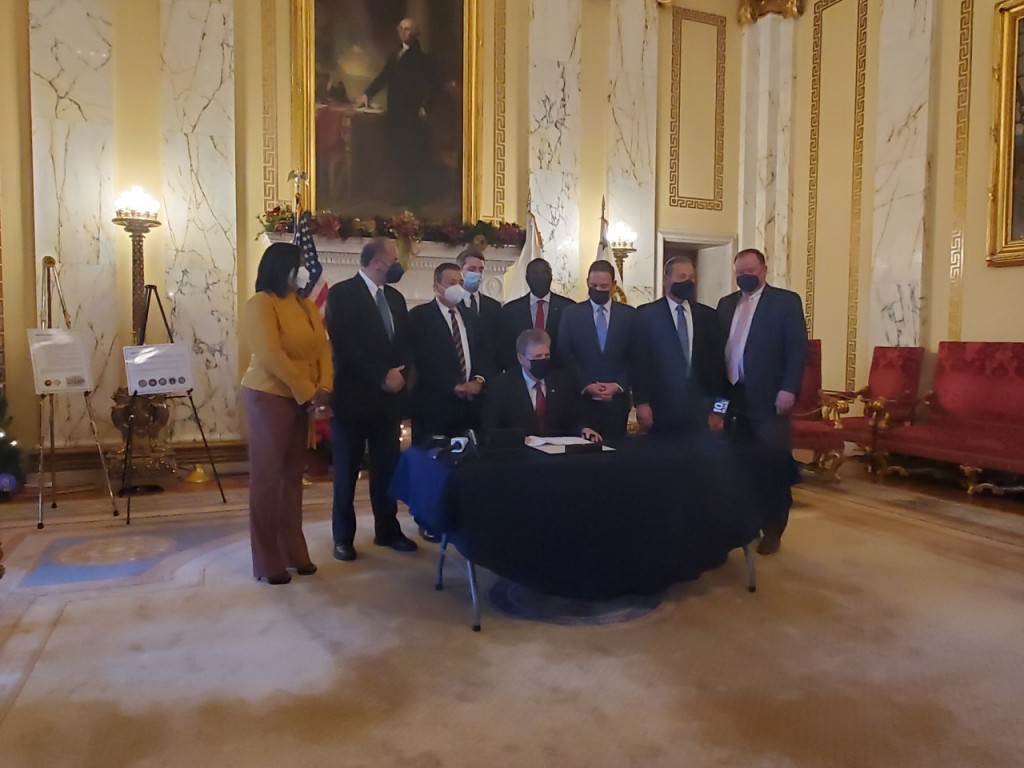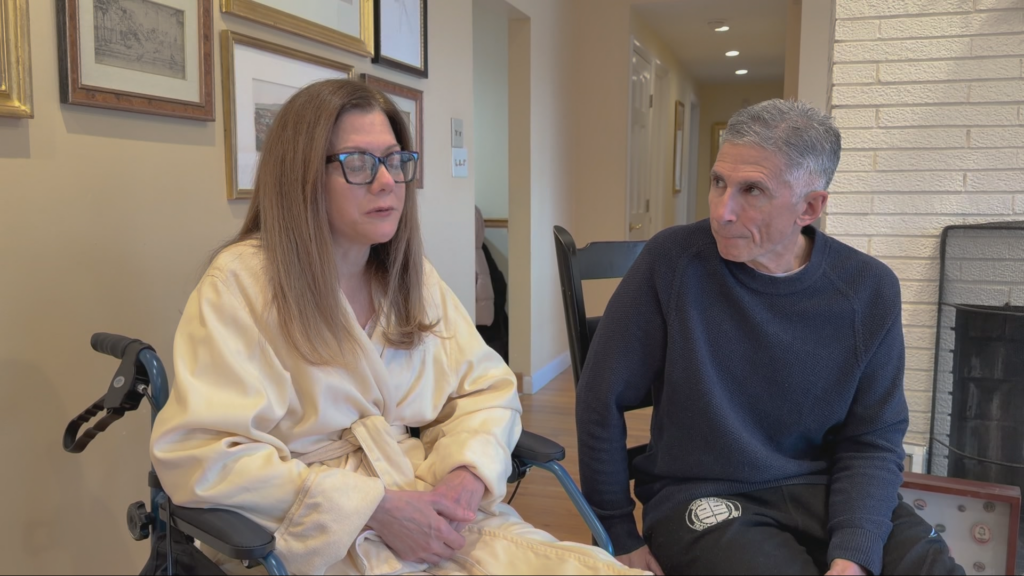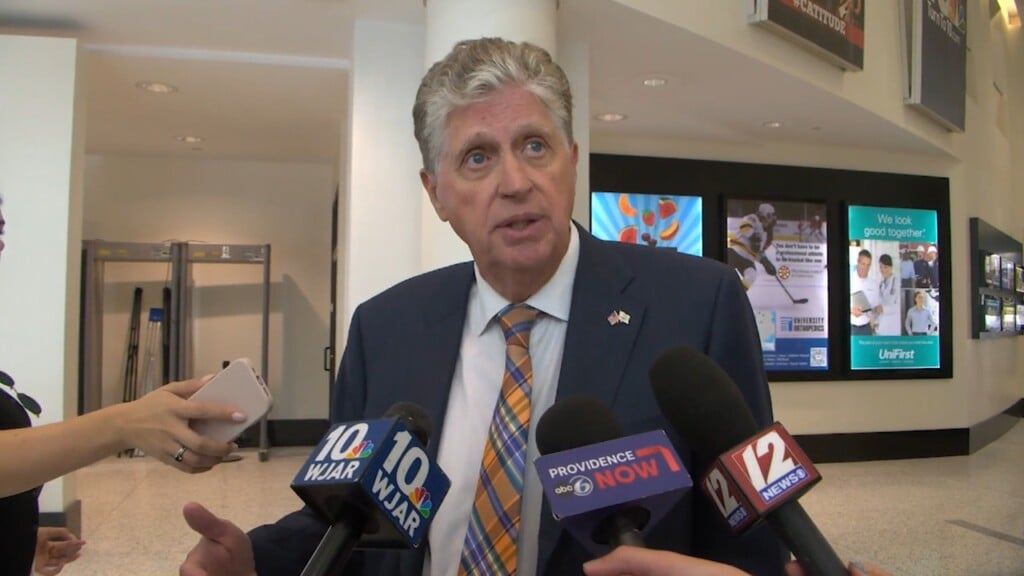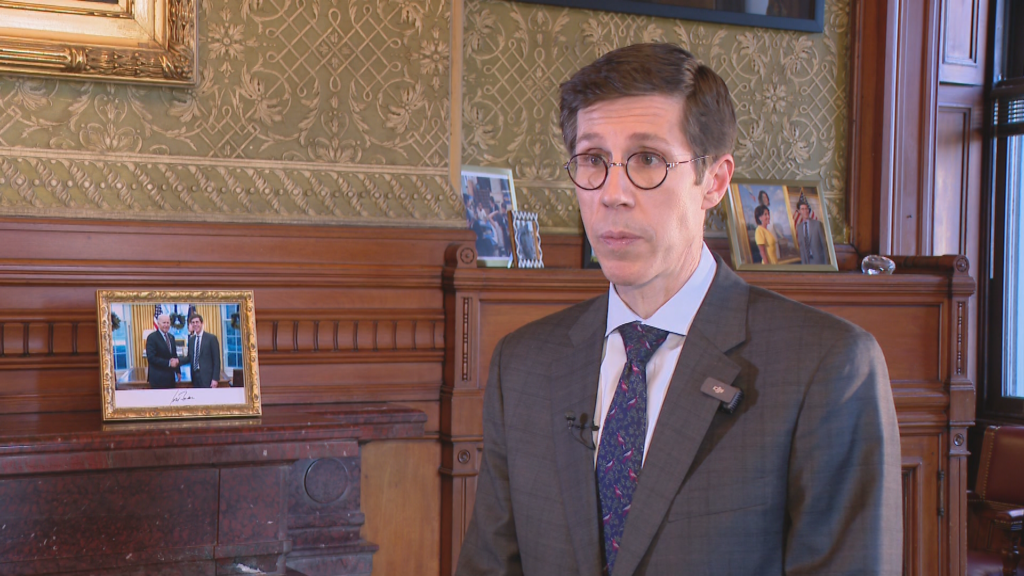Governor McKee, Legislators, sign RI Rebounds plan

PROVIDENCE, R.I. (WLNE)- Governor McKee, House Speaker Joseph Shekarchi, and Senate President Dominick J. Ruggerio met after a unanimous vote by the House and Senate to sign the Governors funding proposal, RI Rebounds.
RI Rebounds invests $119 million in ARPA funding towards families, children, workers, housing and small businesses in Rhode Island.
The original proposal amounted to $113 million, with $38.5 million to support children, families, and social support; $32 million for small businesses impacted by COVID-19; $29.5 million to promote affordable housing, housing stability and broadband; $13 million for tourism, hospitality and event industries.
In December, the Governor, Speaker, and Senate President added an additional $6 million to support child care, bringing the total of the proposal to $119 million.
“Today, we move forward with a crucial investment in Rhode Island’s future,” said Governor McKee. “RI Rebounds directs federal funding where it is needed most – to children, families, workers, housing and small businesses. I thank the Speaker and Senate President for their partnership and commitment to making this plan a reality. I look forward to working together to further our recovery and make Rhode Island a more prosperous and equitable state for all.”
“This investment is an essential step towards reenergizing our local communities and small businesses by targeting areas where they are needed most: such as affordable housing and accessible childcare,” said Lt. Governor Sabina Matos. “These funds will go a long way towards helping families get back to work and helping small business owners keep their doors open.”
“The House has been collaboratively working with the Senate and Governor McKee for several months to ensure that the ARPA funding is spent wisely and invested in a long-term sustainable manner,” House Speaker Shekarchi said. “After several hearings, our House Finance Committee will soon consider an initial investment of $119 million for affordable housing, children’s and family services, child care, and assistance for small businesses and the tourism and hospitality industries. In addition, after listening closely to the members of our House Democratic Caucus, we successfully came to an agreement with the Governor to immediately invest more than $3 million in CARES Act dollars to support critical Early Intervention services. I am also pleased to join in the announcement of $57.4 million of federal medical assistance funding to support thousands of home and community-based direct care workers.”
Senate President Ruggerio said, “I want to thank Governor Daniel McKee and Speaker Joseph Shekarchi for working collaboratively with the Senate throughout this process. I am very grateful to Senate Finance Committee Chairman Ryan Pearson and the dedicated members of the Finance Committee, who met for more than 28 hours over the course of the fall to review federal relief spending plans. Child care is a top priority for the Senate, and the revised ARPA plan will add $6 million on top of the $13 million the Governor had proposed. Leader McCaffrey and I are among those who have attended roundtable discussions with child care providers across the state this fall. This is critically important. The industry is in crisis, and we can’t get people back to work if they can’t get child care.”
“We have a responsibility to spend this money in ways that help everyday Rhode Islanders move forward and ensure that our state and its institutions are able to weather the storm brought on by the pandemic. Our goal has been to make sure the money is spent where it is most needed, particularly in hard-hit sectors like public health, housing and childcare, where resources were already thin before COVID hit,” said House Finance Committee Chairman Marvin L. Abney (D-Dist. 73, Newport, Middletown).
Senate Finance Committee Chairman Ryan W. Pearson (D-Dist. 19, Cumberland, Lincoln) said, “Shoring up child care in particular was a very important priority for us in the Senate. The availability of high-quality, affordable child care is important for the safety and development of our children, and it critical for our workforce and business strength as well. The dollars we invest in childcare have multiplier effect, improving the lives of families and the success of businesses and the state’s economy as a whole.”



